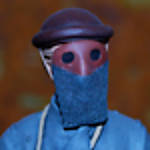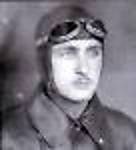
Early Aviation
Discuss World War I and the early years of aviation thru 1934.
Discuss World War I and the early years of aviation thru 1934.
Hosted by Jim Starkweather
Who am I? #4

JackFlash

Joined: January 25, 2004
KitMaker: 11,669 posts
AeroScale: 11,011 posts

Posted: Monday, April 15, 2013 - 04:43 PM UTC

SHarjacek

Joined: January 29, 2011
KitMaker: 977 posts
AeroScale: 263 posts

Posted: Monday, April 15, 2013 - 05:36 PM UTC
Is a Fokker D.II for sure, is the one sitting in the cockpit by any chance it's designer Martin Kreutzer ?
Kind regards, Sven.
Kind regards, Sven.

OEFFAG_153

Joined: February 19, 2010
KitMaker: 1,473 posts
AeroScale: 1,450 posts

Posted: Monday, April 15, 2013 - 10:12 PM UTC
Ernst Udet?
Mikael
Mikael

JackFlash

Joined: January 25, 2004
KitMaker: 11,669 posts
AeroScale: 11,011 posts

Posted: Monday, April 15, 2013 - 11:54 PM UTC
No & no.

eseperic

Joined: November 06, 2009
KitMaker: 624 posts
AeroScale: 609 posts

Posted: Tuesday, April 16, 2013 - 01:43 AM UTC
The Blond Devil - Gunther 'Dedi' Plüschow?
... and now I get Fokker D.II in 1/48?
All the best,
Entoni
... and now I get Fokker D.II in 1/48?

All the best,
Entoni

OEFFAG_153

Joined: February 19, 2010
KitMaker: 1,473 posts
AeroScale: 1,450 posts

Posted: Tuesday, April 16, 2013 - 04:04 AM UTC
Josef Jacobs?

eseperic

Joined: November 06, 2009
KitMaker: 624 posts
AeroScale: 609 posts

Posted: Tuesday, April 16, 2013 - 04:29 AM UTC
Quoted Text
Josef Jacobs?
No, Mikael! I am pretty sure it's Gunther - "the hero from Tsingtau"...though, I may be wrong!
...but I still want the Fokker

All the best,
Entoni

JackFlash

Joined: January 25, 2004
KitMaker: 11,669 posts
AeroScale: 11,011 posts

Posted: Tuesday, April 16, 2013 - 08:10 AM UTC
To fine tune it, not Josef Jacobs. And the (Armee)Ehrenrangliste des Heeres contains only the two Plüschow brothers, so it´s very pobably that "Didi" is the younger one, Wolfgang.
Wolfgang L. Plüschow OL (FlTr) KIA(abg) 1918
Oberrheinisches Infanterie-Regiment Nr. 97.
Jasta 11, 1917
KIA 5 July 1918 as an instructor FEA 9.
OL Plüschow (Hans) Major a. D.
Großherzoglich Mecklenburgisches Füsilier-Regiment
Nr. 90 Kaiser Wilhelm
Chief of Reg: Seine Majestät der Kaaiser und König
These are Guther's brothers in the Armee.
Kap.Lt Gunther Plüschow was of course a Naval officer.
Wolfgang L. Plüschow OL (FlTr) KIA(abg) 1918
Oberrheinisches Infanterie-Regiment Nr. 97.
Jasta 11, 1917
KIA 5 July 1918 as an instructor FEA 9.
OL Plüschow (Hans) Major a. D.
Großherzoglich Mecklenburgisches Füsilier-Regiment
Nr. 90 Kaiser Wilhelm
Chief of Reg: Seine Majestät der Kaaiser und König
These are Guther's brothers in the Armee.
Kap.Lt Gunther Plüschow was of course a Naval officer.

JackFlash

Joined: January 25, 2004
KitMaker: 11,669 posts
AeroScale: 11,011 posts

Posted: Tuesday, April 16, 2013 - 08:39 AM UTC
Kap.Lt Gunther Plüschow was of course a Naval officer.

World War I
When the First World War began in August 1914, Lieutenant Plüschow was assigned to the East Asian Naval Station at Tsingtau, a German colony in China. Two Taube airplanes had been shipped in crates from Imperial Germany. After supervising the assembly of the planes, Plüschow began serving as pilot and aerial observer. The second plane, flown by Lt. Friedrich Müllerskowski, soon crashed, leaving Plüschow to fly alone. A Japanese ultimatum on August 15 demanding the German evacuation of Kiautschou Bay was understandably ignored, and eight days later Japan declared war against Germany. Japanese and British forces then jointly besieged the German colony. By November 1914, the military situation at Kiautschou Bay had become untenable, and on November 6 Plüschow (who had flown reconnaissance and had downed a Japanese aircraft with his pistol) was ordered to fly out in his Taube, carrying the last dispatches and documents from the governor. After flying about 250 kilometres (160 mi) in his much-repaired airplane, Plüschow crashed into a rice paddy. He set fire to the Taube, then started for Germany on foot.[1]
Escape from China
Plüschow walked to Daschou, where the local mandarin gave a party for him. He managed to obtain a pass to cross China, as well as a junk in which he sailed down a river, finally arriving safely at Nanking. Plüschow sensed that he was being watched, even by officials openly friendly to Germany. As he was about to be arrested, he leapt in a rickshaw and went to the railway station, where he bribed a guard and slipped on a train to Shanghai.
In Shanghai, Plüschow met the daughter of a diplomat he knew from Berlin. She provided him with documents as a Swiss national, as well as money and a ticket on a ship sailing to Nagasaki, Honolulu, and, finally, to San Francisco. In January 1915, he crossed the United States to New York City. He was reluctant to approach the German consulate there, as he had entered the country under a false identity. Worse, he read in a newspaper that he was presumed to be in New York. His luck saved him again. He met a friend from Berlin who managed to get him travel documents for a ship that sailed on January 30, 1915, for Italy. Bad weather forced Plüschow's ship to dock at Gibraltar, where the British arrested him as an enemy alien. They soon discovered he was the famous aviator of Tsingtau.
Escape from London
On July 1, 1915, Plüschow was sent to a prisoner of war camp in Donington Hall in Leicestershire. Three days later, he escaped during a storm and headed for London. Scotland Yard issued an alert, asking the public to be on the lookout for a man with a "dragon tattoo" on his arm.
Disguised as a worker, Plüschow felt safe enough to take souvenir photographs of himself at the London docks. He occupied his time by reading books about Patagonia, and at night he hid inside the British Museum. For security reasons, no notices were published announcing the departure of ships, but a lucky encounter with another of his lady friends allowed him to obtain the information to board the ferry Princess Juliana, sailing for the neutral Netherlands. He arrived safely and finally reached Germany, where he was at first arrested as a spy - no one believing he could have accomplished such a feat!
Return to Germany
Once he was identified, Plüschow was acclaimed as "the hero from Tsingtau". He was decorated, promoted, and assigned command of the naval base at Libau in occupied Latvian Courland. In June 1916, in an airplane hangar at Libau, Plüschow married. He also wrote his first book, The Adventures of the Aviator from Tsingtau, which sold more than 700,000 copies. In 1918, his son, Guntolf Plüschow, was born.
1918 was a year of profound crisis in Germany. In November, Wilhelm II, German Emperor, was forced to flee to the Netherlands as his nation dissolved into chaos. In 1919, the harsh Treaty of Versailles was imposed on Germany by her victorious enemies, and several military and civil revolts took place. Kapitänleutnant [lieutenant commander] Plüschow refused to participate. Instead, at age 33, he reluctantly resigned from the Reichsmarine.
Post War
After he left the Navy, Plüschow worked at various jobs before he was hired on the sailing vessel Parma, bound for South America. The ship took him around Cape Horn to Valdivia, Chile; he then traveled overland across Chile to Patagonia. On his return to Germany, he published Segelfahrt ins Wunderland ("Voyage to Wonderland"), which earned him enough for further explorations.
On November 27, 1927, Plüschow took the wooden two-masted cutter Feuerland to Punta Arenas, Chile. His engineer, Ernst Dreblow, brought his seaplane, a Heinkel HD 24 D-1313, aboard a steamer. By December 1928, the airplane had been fully assembled and the inaugural flight brought the first air mail from Puntas Arenas to Ushuaia, Argentina. In the months following, Plüschow and Dreblow were the first to explore by air the Cordillera Darwin, Cape Horn, the Southern Patagonian Ice Field, and the Torres del Paine of Patagonia. In 1929, Plüschow had to sell the Feuerland to obtain funds to return to Germany. There he published his explorations and photographs in a book, Silberkondor über Feuerland ("Silver Condor over Tierra del Fuego"), and a documentary film of the same name.
The following year, he returned to Patagonia to explore the Perito Moreno Glacier. There, both he and Dreblow were killed in fatal crash near the Brazo Rico, part of Lake Argentino, on January 28, 1931. (Text modified from Wikipedia)
Biographies:
Gunther Plüschow: Silberkondor über Feuerland, documentary, 1929.
Ikarus, 1931
Fahrt ins Land der Wunder und Wolken, released after 1931

World War I
When the First World War began in August 1914, Lieutenant Plüschow was assigned to the East Asian Naval Station at Tsingtau, a German colony in China. Two Taube airplanes had been shipped in crates from Imperial Germany. After supervising the assembly of the planes, Plüschow began serving as pilot and aerial observer. The second plane, flown by Lt. Friedrich Müllerskowski, soon crashed, leaving Plüschow to fly alone. A Japanese ultimatum on August 15 demanding the German evacuation of Kiautschou Bay was understandably ignored, and eight days later Japan declared war against Germany. Japanese and British forces then jointly besieged the German colony. By November 1914, the military situation at Kiautschou Bay had become untenable, and on November 6 Plüschow (who had flown reconnaissance and had downed a Japanese aircraft with his pistol) was ordered to fly out in his Taube, carrying the last dispatches and documents from the governor. After flying about 250 kilometres (160 mi) in his much-repaired airplane, Plüschow crashed into a rice paddy. He set fire to the Taube, then started for Germany on foot.[1]
Escape from China
Plüschow walked to Daschou, where the local mandarin gave a party for him. He managed to obtain a pass to cross China, as well as a junk in which he sailed down a river, finally arriving safely at Nanking. Plüschow sensed that he was being watched, even by officials openly friendly to Germany. As he was about to be arrested, he leapt in a rickshaw and went to the railway station, where he bribed a guard and slipped on a train to Shanghai.
In Shanghai, Plüschow met the daughter of a diplomat he knew from Berlin. She provided him with documents as a Swiss national, as well as money and a ticket on a ship sailing to Nagasaki, Honolulu, and, finally, to San Francisco. In January 1915, he crossed the United States to New York City. He was reluctant to approach the German consulate there, as he had entered the country under a false identity. Worse, he read in a newspaper that he was presumed to be in New York. His luck saved him again. He met a friend from Berlin who managed to get him travel documents for a ship that sailed on January 30, 1915, for Italy. Bad weather forced Plüschow's ship to dock at Gibraltar, where the British arrested him as an enemy alien. They soon discovered he was the famous aviator of Tsingtau.
Escape from London
On July 1, 1915, Plüschow was sent to a prisoner of war camp in Donington Hall in Leicestershire. Three days later, he escaped during a storm and headed for London. Scotland Yard issued an alert, asking the public to be on the lookout for a man with a "dragon tattoo" on his arm.
Disguised as a worker, Plüschow felt safe enough to take souvenir photographs of himself at the London docks. He occupied his time by reading books about Patagonia, and at night he hid inside the British Museum. For security reasons, no notices were published announcing the departure of ships, but a lucky encounter with another of his lady friends allowed him to obtain the information to board the ferry Princess Juliana, sailing for the neutral Netherlands. He arrived safely and finally reached Germany, where he was at first arrested as a spy - no one believing he could have accomplished such a feat!
Return to Germany
Once he was identified, Plüschow was acclaimed as "the hero from Tsingtau". He was decorated, promoted, and assigned command of the naval base at Libau in occupied Latvian Courland. In June 1916, in an airplane hangar at Libau, Plüschow married. He also wrote his first book, The Adventures of the Aviator from Tsingtau, which sold more than 700,000 copies. In 1918, his son, Guntolf Plüschow, was born.
1918 was a year of profound crisis in Germany. In November, Wilhelm II, German Emperor, was forced to flee to the Netherlands as his nation dissolved into chaos. In 1919, the harsh Treaty of Versailles was imposed on Germany by her victorious enemies, and several military and civil revolts took place. Kapitänleutnant [lieutenant commander] Plüschow refused to participate. Instead, at age 33, he reluctantly resigned from the Reichsmarine.
Post War
After he left the Navy, Plüschow worked at various jobs before he was hired on the sailing vessel Parma, bound for South America. The ship took him around Cape Horn to Valdivia, Chile; he then traveled overland across Chile to Patagonia. On his return to Germany, he published Segelfahrt ins Wunderland ("Voyage to Wonderland"), which earned him enough for further explorations.
On November 27, 1927, Plüschow took the wooden two-masted cutter Feuerland to Punta Arenas, Chile. His engineer, Ernst Dreblow, brought his seaplane, a Heinkel HD 24 D-1313, aboard a steamer. By December 1928, the airplane had been fully assembled and the inaugural flight brought the first air mail from Puntas Arenas to Ushuaia, Argentina. In the months following, Plüschow and Dreblow were the first to explore by air the Cordillera Darwin, Cape Horn, the Southern Patagonian Ice Field, and the Torres del Paine of Patagonia. In 1929, Plüschow had to sell the Feuerland to obtain funds to return to Germany. There he published his explorations and photographs in a book, Silberkondor über Feuerland ("Silver Condor over Tierra del Fuego"), and a documentary film of the same name.
The following year, he returned to Patagonia to explore the Perito Moreno Glacier. There, both he and Dreblow were killed in fatal crash near the Brazo Rico, part of Lake Argentino, on January 28, 1931. (Text modified from Wikipedia)
Biographies:
Gunther Plüschow: Silberkondor über Feuerland, documentary, 1929.
Ikarus, 1931
Fahrt ins Land der Wunder und Wolken, released after 1931
 |






